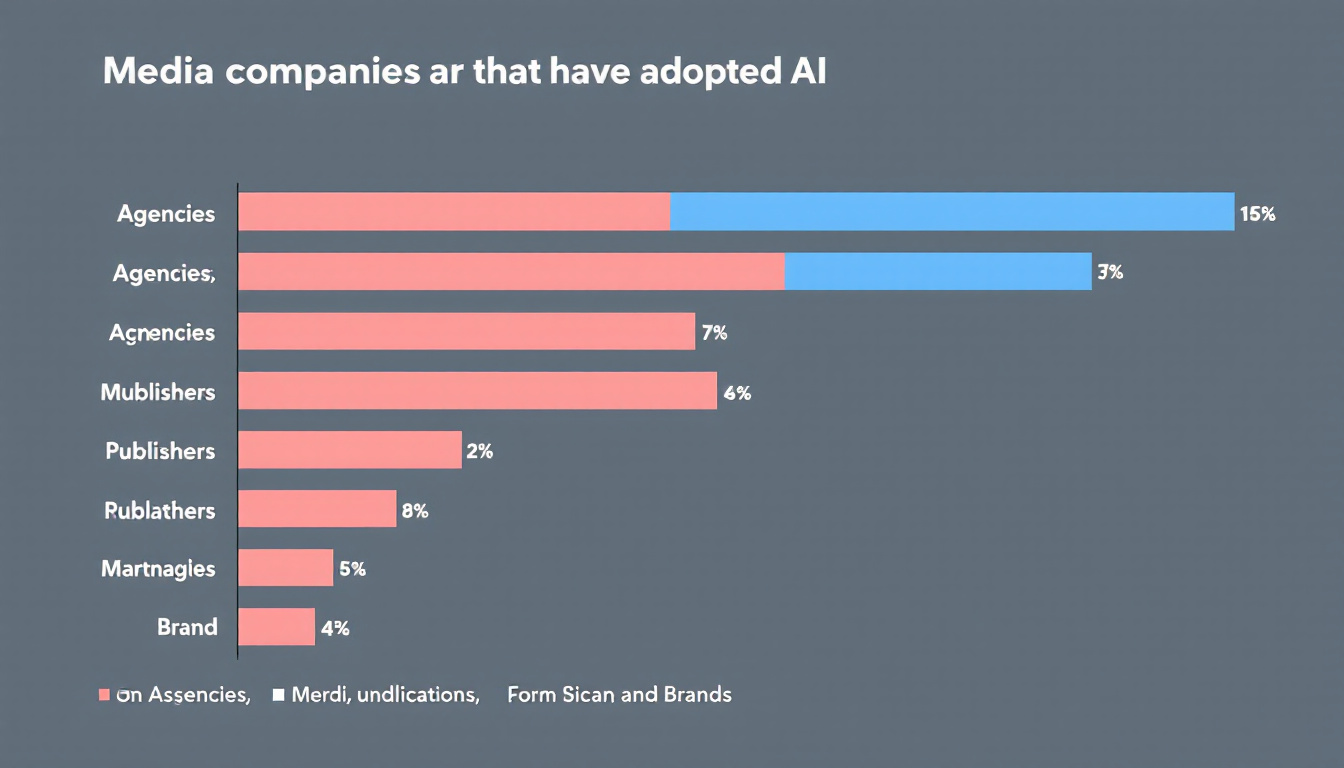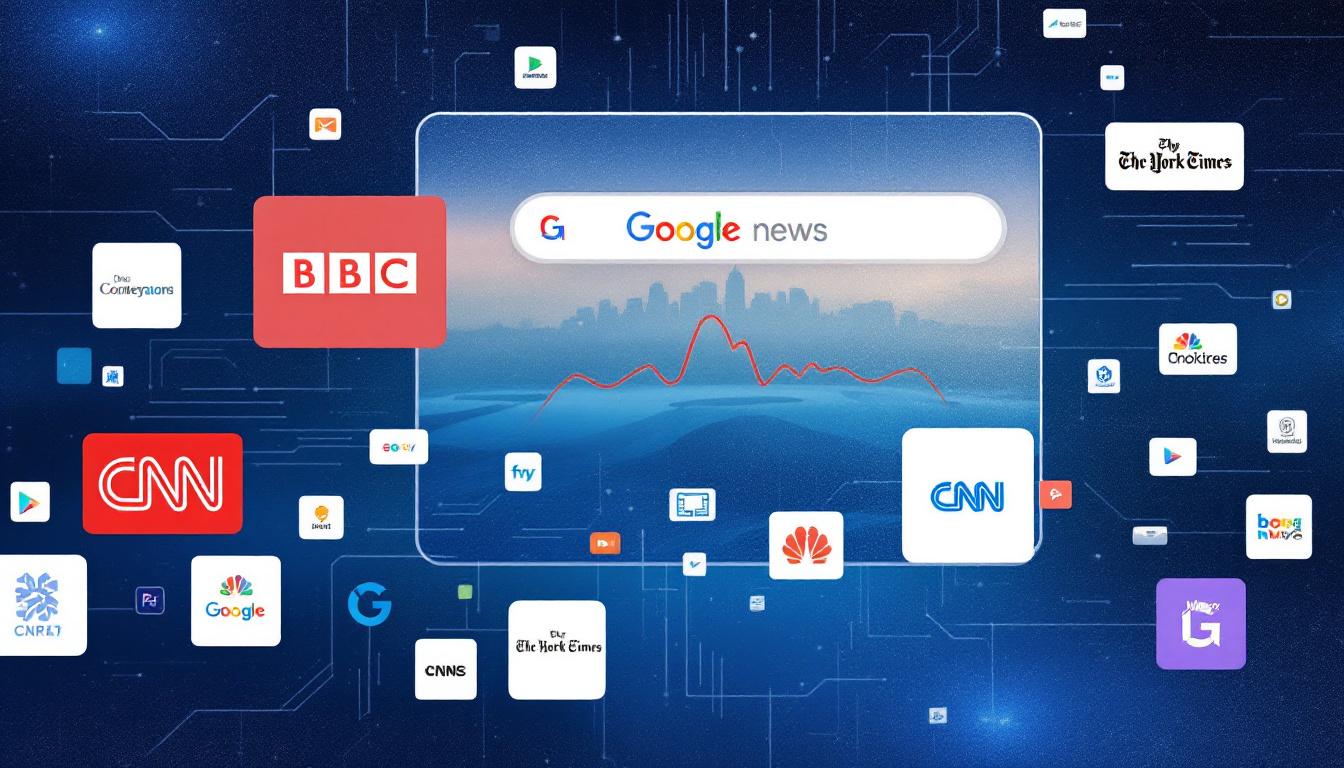A recent report from the Interactive Advertising Bureau (IAB) uncovers that 70% of media organizations have yet to fully integrate artificial intelligence into their operations.
Writecream
Your ultimate secret weapon for SEO, sales, and marketing success.
Despite recognizing the benefits, many are still hesitant to adopt AI technologies, although half of those not currently utilizing AI intend to do so by 2026.
Current AI Adoption in the Media Industry
The IAB’s survey sheds light on how the adoption of AI varies across different sectors within the media landscape.
Implementation Rates
The data reveals distinct patterns in AI usage among agencies, publishers, and brands.
Only 30% of media companies have deployed AI in their campaigns.
Agencies lead with a 37% adoption rate, followed by publishers at 34%, while brands lag significantly behind at 19%.
Planning for the Future
Looking ahead, many organizations have set timelines for integrating AI into their strategies.
Among those not yet utilizing AI, 50% plan to incorporate it into their operations by 2026, indicating a growing recognition of its potential impact on media strategies.
Additionally, the majority (85%) of these organizations rely on general AI tools rather than customized or proprietary solutions, highlighting a preference for readily available technologies over tailored applications.
Perceptions and Benefits of AI
Organizations that have embraced AI report positive outcomes, underscoring its value in media campaigns.
Efficiency and Effectiveness
AI proves to be a valuable asset in enhancing operational efficiency and campaign performance.
A significant 82% of companies using AI state that it meets or exceeds their efficiency expectations, leading to substantial time and cost savings.
Moreover, 75% believe that AI contributes effectively to their media campaigns.
Reliability Over Time
Consistency is another area where AI shows strength, according to user feedback.
73% of respondents find AI to be reliable over extended periods, making it a dependable tool for ongoing media strategies.
While AI excels in data-intensive tasks such as audience segmentation and targeting, it still faces limitations in areas requiring human judgment, such as managing requests for proposals (RFPs) and setting up campaigns.
Obstacles to AI Adoption
Despite the advantages, several challenges impede the widespread adoption of AI in media companies.
Complexity and Security Concerns
Technical hurdles and data protection issues are top of mind for many organizations.
62% of companies express concerns about the complexity involved in setting up and maintaining AI systems, while another 62% worry about the risks related to data security.
Knowledge Gaps and Transparency
A lack of expertise and clarity in AI operations also hinder its implementation.
61% point to insufficient AI knowledge within their organizations, and 60% have reservations regarding the accuracy and transparency of AI tools.
Interestingly, concerns about job displacement are relatively low, with only 37% of respondents viewing it as an issue.
Unique Challenges Across Media Segments
Different segments within the media industry face distinct obstacles when integrating AI.
Publishers’ Technical Struggles
Publishers face specific technical and operational challenges in adopting AI.
67% of publishers find the technology too complex, and 62% struggle with fragmented capabilities, making it difficult to implement cohesive AI strategies.
Resistance in Agencies
Agencies encounter internal and external pushback when trying to adopt AI.
A notable 61% of agencies report resistance to change from both team members and clients, hindering their AI adoption efforts.
Furthermore, 56% of both brands and publishers lack a clear vision for AI integration, and 51% of brands are concerned about the transparency of their partners’ AI usage.
The Path Forward for AI in Media
The IAB report outlines key strategies for overcoming current challenges and successfully implementing AI.
Enhancing Data and Governance
Robust data management and governance are critical for effective AI utilization.
Organizations need to ensure high-quality data and establish comprehensive governance frameworks to support AI initiatives.
Training and Goal Setting
Equipping teams with the necessary skills and setting clear objectives are essential steps.
Investing in team training on best practices and defining specific goals can facilitate smoother AI integration and better outcomes. Establishing industry-wide standards for transparency, privacy, and reliability will also play a crucial role.
Collaborative efforts to develop these standards will position companies to better manage the evolving landscape of digital advertising.
The Bottom Line
AI is poised to transform media campaigns, but widespread adoption is still in its early stages.
As the technology matures and companies invest in the necessary infrastructure and training, the media industry can expect more robust and effective AI-driven strategies.
Organizations that proactively address the barriers and collaborate on setting industry standards will be well-equipped to leverage AI’s full potential, ensuring they remain competitive in the rapidly changing digital landscape.








